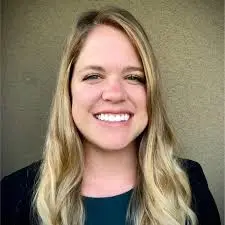Certified Scrum Master (CSM)® Certification Training
Key Features
- 2 Days Classroom Training
- 16 PMI PDUs offered
- 2 Simulation Exams
- CSM Exam Fee Included
- Course Completion Certificate
- Scrum Alliance Certified Scrum Trainer®
Training Mode
E-LEARNING
$499
- (CSM)® 180 days e-Learning
- Self paced online e-learning
- Interactive audio-video lessons
- Online Exam Simulator
- ebook and study materials
- 24x7 Online access
Online – Classroom Bootcamp
$999
- 90 days of flexible access to online, classroom classes
- Live, online classroom training by certified instructor & Practitioners
Class starts from:-
- 30 Sep - Weekend Class
- 28 Sep - Weekday Class
CORPORATE TRAINING
- Customized learning delivery model (digital material and/or instructor-led)
- Flexible pricing options
- Enterprise grade Learning Management System (LMS)
- Enterprise dashboards for individuals and teams
- 24x7 learner assistance and support
CERTIFIED SCRUM MASTER (CSM)® CERTIFICATION TRAINING COURSE
The CSM course focuses on improved understanding of Scrum methodologies and their implementation. The course provides Scrum and Agile overview, Scrum values, Scrum selling techniques to stakeholders, etc. Their focus is on the energy, and wisdom of the individual of the team and their interrelatedness.
- You will understand the entire process to motivate the team to work towards a goal. (They will also know how to implement effective scrum meetings and thus can drive the entire team to deliver results making the best use of every individual’s talent.
- Once you are certified, you will be able to better act as a coach and not a boss to get work done by the team.
- Scrum-certified masters can engage with people and lead them to execute the organization’s vision and purpose.
- They are responsible to devise a strategy, defining features of the product, and creating a roadmap for the entire development phase.
- That being the case a scrum certification program will empower each individual to take part in the project to deliver the right product on time.
- When this person attends CSM training and gets the certification, the entire project implementation takes a new dimension. Therefore, you will learn to guide a team to success and make the customers happy.
CSM® COURSE AGENDA AND OVERVIEW
Course Overview
Certified Scrum Master (CSM) is a certification provided by the Administered by Scrum Alliance It is relevant for individuals seeking career enhancement roles in scrum master, program manager, agile coach, agile scrum master, etc. The CSM certification qualifies a professional for timely delivery and better product quality. A Certified Scrum Master is a team coordinator, and this certification is based on the servant leadership principle. CSM Certification ensures that the person is adept in scrum roles, fundamentals of agile, team management, sprint, and responsiveness to the higher management in the company hierarchy.
BENEFITS OF PMP CERTIFICATION
At the end of this course, you will:
- Gain Skills to motivate the team to work towards a goal.
- Get the fundamentals of Scrum and the breadth of the Scrum Master’s responsibilities.
- You will have access to Scrum resources, networks, and local groups.
- Advance your agile career.
- Demonstrate your essential Scrum knowledge to your colleagues.
- Carry out the responsibilities of a Scrum Master.
- Participate in a Scrum expert community.
Course Agenda
1. INTRODUCTION TO AGILE AND SCRUM
- Why Agile?
- Traditional Development
- Problems with traditional software development
- Usage of features in a system
- Makings of a new approach
- Agile Manifesto
- Principles behind the Agile Manifesto
- Authors of the Agile Manifesto
- Agile Project Management
- Agile Project Management Life-cycle
- Agile Project Management Framework
- APM Framework
- What is Scrum?
- Certified Scrum Master
- Professional Scrum Master
- PMI-ACP
2. AGILE METHODOLOGIES
- Agile Methodologies
- Crystal
- Project Properties in Crystal
- Samples of Crystal
- Feature-Driven-Development
- Roles in FDD
- Processes in FDD
- Project tracking in FDD
- Project tracking methodology
- FDD usage guidelines
- Dynamic Systems Development Methodology (DSDM)
- Planning in DSDM-Atern
- DSDM Principles and techniques
- eXtreme Programming
- XP Values
- XP Practices
- XP Benefits
- Agile Unified Process
- Agile Unified Process (AUP)
- Agile Unified Process – System Development
- Scrum
- Scrum Life-cycle
3. SCRUM ROLES
- Stakeholders
- Chicken and Pig roles
- Management of stakeholders
- Scrum life-cycle
- Product Owner
- Product Owner’s role
- Prioritization
- Cost-Benefit Analysis
- Prioritization based on Value and Risk
- Prioritizing requirements – MoSCoW
- Prioritizing requirements – Kano Model
- Prioritizing requirements – Relative weighting method
- Scrum life-cycle
- Scrum Master
- What does a Scrum Master Do
- What the Scrum Master Should NOT do
- Scrum life-cycle
- The team – aka Developers
- Building a Scrum team
- Building empowered teams
- Role of a Manager
- Manager 2.0: A new role for a Manager
- Some specialist roles you may want
4. SCRUM CEREMONIES
- Time-boxing
- Advantages of time-boxing
- Time-boxing
- Release
- A high-level view of a release
- Sprints
- Factors in selecting a Sprint duration
- Intensity of work
- No changes in a Sprint
- Daily Scrum
- Sprint Review
- Check during a review
- Sprint Retrospective
- What is a Sprint Retrospective
- Making retrospectives effective
- Making retrospectives effective
5. SCRUM ARTIFACTS
- Product backlog
- Product, release, and sprint backlog
- User story
- Story card information
- Multiple stories may be required to complete a feature
- Epics
- Writing good stories
- Splitting user stories
- Splitting user stories (big picture)
- Splitting user stories (user experience)
- Splitting user stories (Others)
6. SCRUM BEST PRACTICES
- Refactoring
- Pair programming
- Continuous integration
- Practices of continuous integration
- Configuration management
- Quality in Agile
- Scrum Quality – Home truths
- Planning for a Sprint
- Test-driven development
- Test-driven development
- Advantages of TDD
- Definition of “Done”
7. SCRUM PLANNING
- Principles behind Agile planning
- Iterations allow for mid-course corrections
- Multiple levels of planning
- Release planning
- Steps to planning a release
- Release Planning
- Velocity
- Sprint planning
- Velocity-driven sprint planning
- Commitment-driven sprint planning
- Planning for each story
- Keep in mind before finalizing the plan
8. SCRUM ESTIMATION
- Principles behind Scrum estimation
- Estimation techniques
- Types of estimates
- Uncertainty in estimates
- Over-estimation and under-estimation
- What contributes to the size
- Measures of size
- Ideal days
- Story points
- Estimation techniques – Planning poker
- Affinity estimation
- Affinity estimation – a process
9. MONITORING SCRUM PROJECTS
- Monitoring Scrum Projects
- Definition – Metrics
- Types of metrics
- Metrics do’s and don’ts
- Charts in Scrum
- Burn-down chart: Iteration level
- Burn down chart: Project level
- Burn down chart: Bar style
- Burn-up and Burn-down chart
- Cumulative Flow Diagram
- Parking lot diagram
- Escaped defects found
- Velocity chart
- Progress Chart
- Niko calendar
- Information radiators
- Information radiators: Big visible charts
- Information radiators
10. SCRUM – ADVANCED CONCEPTS
- Scrum on large projects
- Scrum-of-Scrum
- Product coordination teams
- Scrum on maintenance projects
- Distributed scrum teams
- Best practices in the distributed scrum
- Structure-1: Team in India; PO in the US
- Structure-2: Team split into two locations
- People practice in distributed Scrum
- Practices in a distributed scrum
- Practices in a distributed scrum
- Scrum-Contracting
- Fixed Price/fixed scope
- Scrum in fixed-price projects
- Transitioning a team/project to Scrum
EXAM & CERTIFICATION
There are no prerequisites for this Agile Scrum Master training course. It is recommended for applicants/professionals to have a basic knowledge of the Scrum framework and methodology.
Professionals are required to take an In-person/Instructor Led-Live online two-day CSM training with a certified scrum trainer from Scrum Alliance to be eligible for the CSM exam.
Examination Format:
Questions: 40
Duration: 90 Min
Pass Score: >65 percentile
Exam Type: Objective type, multiple-choice questions
OUR ADVISORS


FAQs
The Exam fee is included with the course, you will have 2 attempts to pass the exam, if you fail the test a second time; you will need to pay a $25 exam fee before taking the exam a third time
The CSM certification course includes:
- 2 Days Classroom Training
- 16 PMI PDUs offered
- 2 Simulation Exams
- CSM Exam Fee Included
- Course Completion Certificate
- Scrum Alliance Certified Scrum Trainer®
There are 3 levels of Scrum certification:
Level 1 - CSM (Certified Scrum Master)
Level 2 - A-CSM (Advance – Certified Scrum Master)
Level 3 - CSP (Certified Scrum Professional)
Once you pass the exam, you will receive a mail wherein you have to accept certain terms and conditions and fill in relevant information that has been requested and print your certificate.
STUDENT EXPERIENCES






